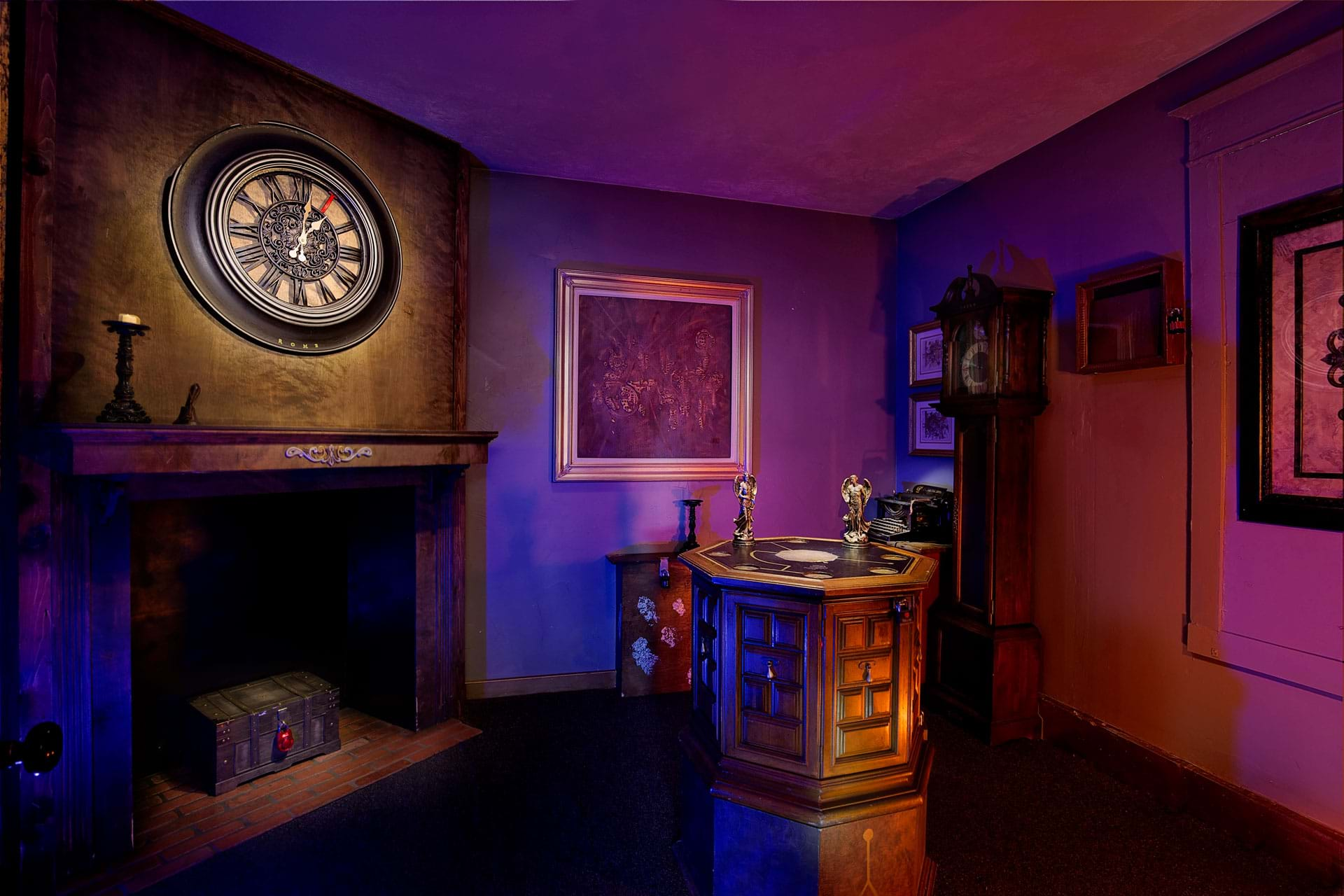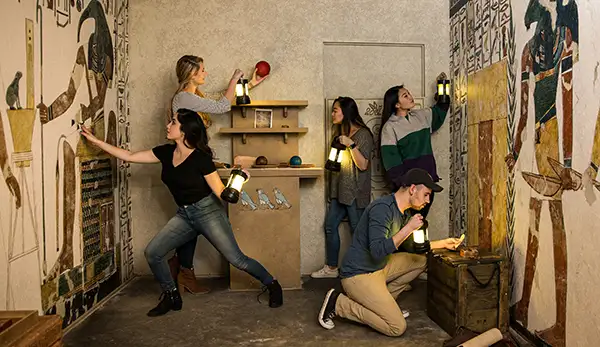Group Techniques: Exactly How to Collaborate Effectively in an Escape Room
Groups must actively pay attention to each member's understandings, appoint duties that line up with specific strengths, and maintain normal check-ins to make certain focus and protect against redundancy. By fostering an atmosphere that values cohesion and flexibility, teams can dramatically enhance their efficiency and success prices.
Establish Clear Interaction

To facilitate clear communication, it is necessary to mark a main factor of contact for details dissemination. This duty entails summing up findings and recommended techniques to ensure everyone stays on the very same web page. Additionally, taking on an organized strategy to discussions can protect against chaotic exchanges. As an example, quick, concentrated updates from each employee can maintain the group informed without frustrating them with information.

Assign Functions Purposefully
While clear communication sets the structure for effective synergy, assigning duties tactically ensures that each employee's toughness are made use of properly. In a getaway area scenario, the time-sensitive and intricate nature of difficulties demands a well-organized technique to job delegation. By identifying and leveraging private competencies, groups can maximize their analytic abilities and boost overall performance.
First, analyze the unique skills and features of each individual. For example, a person with a keen eye for information could succeed in locating covert objects, while a rational thinker might be much better suited to solving challenges - best escape room. It's just as crucial to have a leader who can oversee progress, manage the timeline, and make definitive telephone calls when essential. This function often needs strong organizational and interpersonal abilities.
Second, guarantee that roles are adaptable and versatile. As new challenges emerge, the team should have the ability to pivot, reallocating tasks as called for. This flexibility assists maintain energy and avoids bottlenecks that can happen as a result of rigid function assignments.
Inevitably, a critical approach to function job not just makes best use of the strengths of each employee however likewise cultivates a natural atmosphere, driving the group in the direction of an effective getaway.
Utilize Diverse Skills
Acknowledging and using the diverse skills within your group can significantly elevate your efficiency in an escape space. Each employee brings one-of-a-kind strengths to the table, and effectively leveraging these special info capabilities can accelerate problem-solving and enhance overall efficiency. As an example, a staff member with solid logical skills may succeed at decoding intricate codes or patterns, while another with keen empirical abilities might swiftly identify concealed hints that others might overlook.
Motivate group members to voice their insights and ideas quickly, making certain that all potential options are taken into consideration. In addition, appointing tasks that straighten with each participant's strengths can stop bottlenecks and make certain that progress is constant.
In addition, variety in abilities commonly converts to diversity in believing styles, which is very useful in a getaway room setting. While some challenges may require logical reasoning and accuracy, others could take advantage of creative and lateral thinking. By recognizing and leveraging this diversity, teams can address a wider array of obstacles better, thereby raising their possibilities of an effective retreat.
Manage Time Efficiently

First, allot preliminary mins for a quick survey of the space. Determine visible challenges and divide jobs based on team participants' strengths, ensuring that nobody is idle. Set internal time checkpoints to assess development regularly; as an example, purpose to have half the challenges solved by the mid-point of the video article source game. This practice can help keep the group concentrated and stop time from slipping away undetected.
Additionally, stay clear of one-track mind. If a puzzle is taking too long, turn group members or carry on to an additional difficulty, returning later with fresh perspectives. Communication is extremely important-- maintain every person updated on addressed challenges and continuing to be tasks to stay clear of repetitive efforts.
Finally, use any type of tips or ideas sparingly but purposefully - best escape room. Recognizing when to request help can save important time. By sticking to these time management principles, teams can significantly improve their possibilities of a successful and enjoyable retreat area experience
Debrief and Show
Reflection is a vital facet of team advancement and renovation in the context of getaway rooms. As soon as the difficulty is finished, whether successfully or otherwise, it is critical for the team to engage in a structured debriefing session. This procedure enables employee to evaluate their efficiency, recognize toughness, and determine areas for improvement.
Start the debrief by reviewing what went well. Highlight specific instances of reliable interaction, analytic, and collaboration. Acknowledging these positive actions reinforces them and encourages their rep in future challenges.
Following, attend to the barriers came across. Review minutes of complication, miscommunication, or ineffective strategies. Encourage an open and useful discussion where employee can share their perspectives without concern of objection. This fosters a culture of constant improvement and knowing.
Conclusion
Finally, effective collaboration in an escape room is based upon clear communication, calculated function assignments, the reliable use of varied skills, and skillful time monitoring. Routine check-ins and structured debriefings are necessary for preserving focus and cultivating constant enhancement. By developing a cohesive and adaptive group environment, the chance of effectively solving problems and accomplishing the objective of escaping the area is considerably boosted. This strategy not only makes certain success however also promotes collective development and learning.